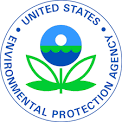EPA Announces $4.8 Million for Research Addressing PFAS in Rural America
 Today (11/22), EPA announced the availability of $4.8 million in funding to address PFAS contamination in rural communities and agriculture. These new grants are designed to identify PFAS impacts on farms, ranches, and rural communities. Eligible applicants for these grants include: public and private nonprofit institutions and public and private U.S. universities and colleges. States, including the District of Columbia and State and local government departments, territories, possessions, and Tribal nations of the U.S., are not eligible to apply under this RFA. EPA is looking for applicants that will research PFAS occurrence, fate, and transport in water sources used by rural communities and agricultural operations, and new or improved PFAS treatment methods appropriate for small drinking water and wastewater systems including influents, effluents, and biosolids/residuals.
Today (11/22), EPA announced the availability of $4.8 million in funding to address PFAS contamination in rural communities and agriculture. These new grants are designed to identify PFAS impacts on farms, ranches, and rural communities. Eligible applicants for these grants include: public and private nonprofit institutions and public and private U.S. universities and colleges. States, including the District of Columbia and State and local government departments, territories, possessions, and Tribal nations of the U.S., are not eligible to apply under this RFA. EPA is looking for applicants that will research PFAS occurrence, fate, and transport in water sources used by rural communities and agricultural operations, and new or improved PFAS treatment methods appropriate for small drinking water and wastewater systems including influents, effluents, and biosolids/residuals.
State Drinking Water Programs may be particularly interested in this research because it addresses biosolids application, which has been a growing concern for drinking water sources in regards to PFAS. Questions driving this research, which EPA hopes to answer include:
- How do serial biosolids applications impact PFAS concentrations and accumulation over time?
- What are the impacts of factors such as soil type, crop type, and landscape traits, such as topography, that may influence PFAS concentration and accumulation?
- How do we treat and clean up PFAS from water, soil and biosolids used in agricultural settings?
Applications will be accepted through February 11, 2020. Information on the application process, number of grants, and award amounts can be found here.
Additionally, EPA will be hosting an informational webinar on this opportunity. For more information click here.
DATE: Thursday, December 5
TIME: 2:00 – 3:00 pm (Eastern)
REGISTER: Click here

